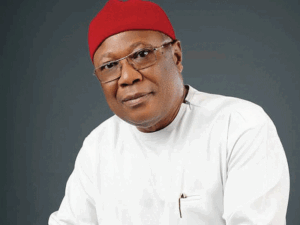The Enugu State government has initiated a campaign to secure UNESCO World Heritage status for four culturally significant locations that embody the region’s rich historical legacy. Commissioner for Culture and Tourism Ugochi Madueke unveiled the ambitious preservation drive during Tuesday’s commemoration of the International Day for Monuments and Sites, themed “From Ruins to Remembrance.”
The proposed sites include the ancient Nsude Pyramid, believed to be one of West Africa’s earliest pyramidal structures; the Lejja Iron Smelting Site dating back to 2000 BCE; the historic residence of Nigeria’s first President Nnamdi Azikiwe during his tenure as Premier of Eastern Region; and the Okpoho Iron Site in Ezeagu showcasing centuries-old metallurgical traditions. “These monuments collectively narrate our identity as innovative thinkers, pioneering leaders, and cultural custodians,” Madueke explained to attendees at the heritage event.
The commissioner emphasized that the UNESCO bid forms part of Governor Peter Mbah administration’s broader strategy to position cultural tourism as an economic driver. “We’re not merely preserving artifacts – we’re activating living testimonies that connect future generations to Africa’s authentic narrative,” she stated, noting that global recognition would boost tourist inflows and create sustainable livelihoods for local communities.
National Commission for Museums and Monuments Director-General Olugbile Holloway endorsed the initiative during his keynote address, reaffirming the federal agency’s commitment to safeguarding Nigeria’s tangible heritage. “These sites represent irreplaceable chapters in humanity’s shared story that demand proactive conservation,” Holloway remarked, citing ongoing collaborations with state governments to enhance heritage management systems.
Archaeologists have particularly highlighted the Lejja ironworking complex as potentially rewriting regional technological history, with carbon dating suggesting sophisticated metal production predating European contact by nearly two millennia. Similarly, Azikiwe’s colonial-era residence symbolizes the intellectual ferment of Nigeria’s independence movement.
The UNESCO application process typically takes several years, involving rigorous technical evaluations of sites’ authenticity, conservation frameworks, and management plans. If successful, Enugu would join Nigeria’s elite group of World Heritage properties currently limited to Sukur Cultural Landscape and Osun-Osogbo Sacred Grove.
Tourism analysts suggest the designation could transform the southeastern state into a pilgrimage for cultural enthusiasts, drawing parallels with Ghana’s successful monetization of slave trade heritage sites. The state government has already commenced documentation of intangible heritage elements – including oral traditions and craft techniques – to strengthen its submission dossier ahead of the 2025 UNESCO deadline.




